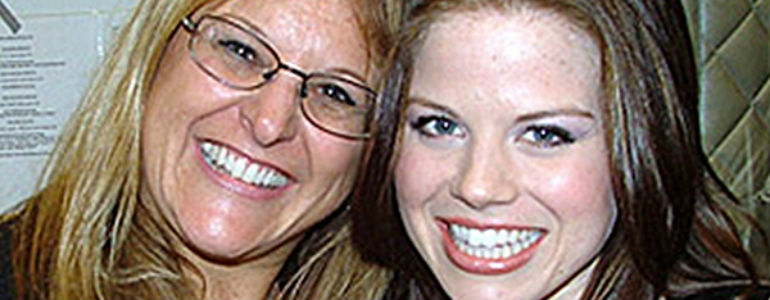10 Questions for a Broadway Pro: The Master of the House.
 There are two types of Managers that fall under the auspices of ATPAM, The Association of Theatrical Press Agents and Managers.
There are two types of Managers that fall under the auspices of ATPAM, The Association of Theatrical Press Agents and Managers.
There are Company Managers, who work for the Producers and act, as I often describe, as the foot soldiers of the General Manager. (I started my career as a member of the CM infantry).
Then there are the House Managers, who work for the Theatre Owners, and make sure everything in that theater operates efficiently. Seem like an easy gig? These guys have to deal with the Public, with Producers and with Performers. I’ll let you decide who is more demanding.
Today’s Broadway Pro is Austin Nathaniel, answering my 10Qs on what it’s like be the Master of the House at a Broadway theater.
Take it Austin!
1. What is your title?
I am the Palace Theatre Manager.
2. What shows are you currently working on?
We just opened the beautiful revival of Annie in November.
3. In one sentence, describe your job.
I view my job as a caretaker of the audience, the cast and creative team, the producers of the show, the staff of the building, and of course the theater itself.
4. What skills are necessary for a person in your position?
A theatre manager must be calm and collected at all times, and able to manage a large number of tasks at once. It’s very important to have a working knowledge of all aspects of the industry, both the creative side and the business side. You must be able to manage a large and diverse staff of employees. Good accounting skills are important. Solid knowledge of the Broadway union contracts is essential. You also need to have a certain measure of compassion and understanding in order to manage your employees and serve the public. And you have to be able to laugh at yourself and others – people are going to be mean. You have to just shrug it off.
5. What kind of training did you go through to get to your position?
I have a B.A. in Theatre Studies from Emerson College in Boston. Emerson had very experienced, working management professionals running the program, so I received a solid education in the business of theater through course work and by working on productions at school. After college I worked for the Huntington Theatre Company as a House Manager and found an incredible mentor and friend in Sondra Katz, the Theater Manager. We were opening the Calderwood Pavilion, the first new theater built in Boston in 75 years. Developing the theater’s operational structure from the ground up alongside someone as knowledgeable as Sondra was a once-in-a-lifetime learning experience. When I came to New York, I was again lucky to do my union apprenticeship as the Associate Theater Manager to David Calhoun, one of the most experienced Theatre/Company Managers on Broadway. There’s no substitute for learning from the best in the business.
6. What was your first job in theatre?
I got a job as a part-time usher at the Goodspeed Opera House in Connecticut when I was still in high school. At the time I just wanted to get away from the job on a farm I’d had the summer before. Who knew it would turn into a career?
7. Why do you think theater is important?
A very wise professor once told me “Art prepares us for the big moments in our lives.” I think theater is the most collaborative art form we have. The communal experience of an audience sharing the emotional heights and depths of a storyteller on stage, live and in the moment, is the purest and most intense artistic format out there. For me, no other medium has the raw emotional power of theater.
8. What is your profession’s greatest challenge today?
Broadway has become about so much more than the shows. All of the talk-backs, meet & greets, backstage tours, pre-show receptions, post-show receptions, press-events, fundraisers, special events, and other satellite activities that now surround our productions take a huge amount of time and planning to make happen and keep cost effective. Theater and Company Managers have an incredible number of balls to juggle managing all of these events while also ensuring that they don’t interfere with the main business of the show.
9. If you could change just one thing about the industry with the wave of a magic wand, what would it be?
I would wish for greater mutual respect between Broadway labor and management. Theatrical employees are extremely dedicated to their jobs, work long hours, deal with very difficult patrons, give up weekends and holidays, and take excellent care of the large and frequently very old buildings we work in. Producers take big risks in producing these shows, and are doing everything in their power to keep them up and running, which ultimately keeps us all employed. It’s easy to forget on both sides that we all love this business and are in it together.
10. What advice would you give to someone who wanted to do what you do?
Experience as many aspects of the business as you can. Act, sing, dance, direct, design, usher, be on a stage crew, stage manage. Crunch numbers, build a budget, work in a management office, box office, or marketing office. Get some experience managing a staff. The more experience you have actually doing these jobs, the better you’ll be able to understand the needs of the people you work with as a Theater Manager. Nothing is more helpful in doing your job than understanding those around you.
(Got a comment? I love ‘em, so comment below! Email Subscribers, click here then scroll down to say what’s on your mind!)
_ _
FUN STUFF:
– Win 2 Tickets to Collision. Click here.
-Broadway Investing 101 Seminar on Saturday, March 2. Register today!
– Like the blog? I hope you’ll also like me on Facebook. Click here.
Podcasting
Ken created one of the first Broadway podcasts, recording over 250 episodes over 7 years. It features interviews with A-listers in the theater about how they “made it”, including 2 Pulitzer Prize Winners, 7 Academy Award Winners and 76 Tony Award winners. Notable guests include Pasek & Paul, Kenny Leon, Lynn Ahrens and more.

















